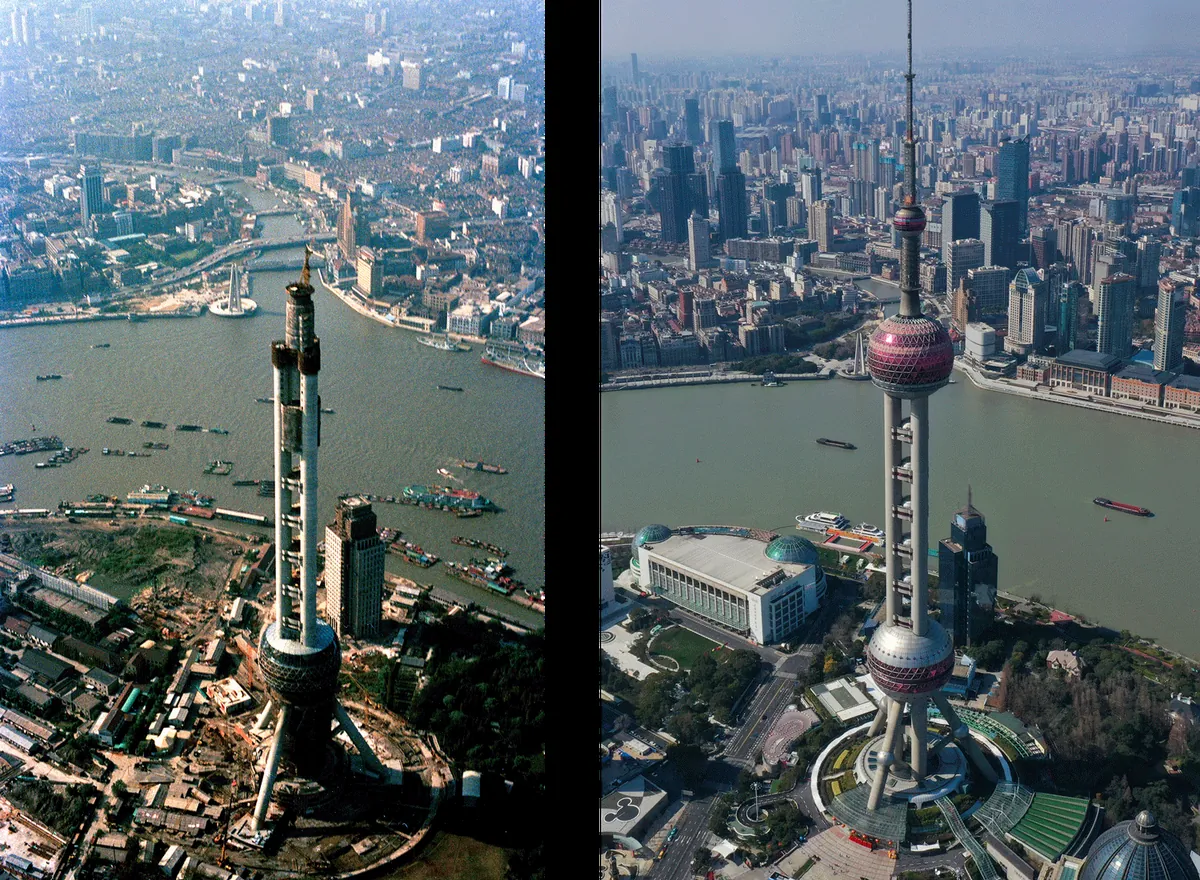Eastern China Swelters as Heatwave Grips Mega-Cities
Major cities in eastern China face scorching temperatures around 40°C, with Shanghai issuing its first red heat warning of the year. The heatwave, expected to persist, reflects global climate change trends.

Eastern China's mega-cities are experiencing an intense heatwave, with temperatures soaring to approximately 40°C (104°F). This extreme weather event, occurring in August 2024, has prompted authorities to issue high-temperature warnings across several provinces.
Shanghai, China's most populous city with over 24 million inhabitants, recorded its first red heat warning of the year. The city's Xujiahui weather station, which has been tracking data since 1873, logged its 22nd day of temperatures exceeding 40°C. This unprecedented heat has significantly impacted daily life in the metropolis.

In nearby Hangzhou, known for its UNESCO World Heritage site West Lake, officials also issued a red warning. Several districts, including Shangcheng, Binjiang, Gongshu, and Xihu, experienced temperatures reaching 40°C. A tourist from the cooler northern province of Hebei described the heat as "fire falling from the sky."
"It's so hot, like fire falling from the sky. I'm sweating all over. There is wind but it is hot."
The heatwave extends beyond these cities, affecting multiple provinces in eastern China, including Anhui, Jiangsu, Hubei, Jiangxi, Zhejiang, and Fujian. Chongqing, a major southwestern city known for its hot summers, is also experiencing extreme temperatures.
This intense heat is not an isolated incident. July 2023 was recorded as the hottest month in China's recent history, with July 22, 2023, being the hottest day ever recorded globally since 1940, according to the European Union's Copernicus Climate Change Service.
Climate experts attribute these extreme weather conditions to global climate change. China, the world's largest emitter of greenhouse gases, has been investing heavily in renewable energy and aims to achieve carbon neutrality by 2060. However, the country continues to grapple with the immediate effects of rising temperatures.
The persistent heatwaves pose significant challenges for urban areas, which often experience higher temperatures due to the heat island effect. This phenomenon can have severe impacts on human health, agriculture, and energy consumption.
As China faces these climate challenges, the government has implemented a national climate change adaptation strategy. However, weather experts predict that hotter and longer heatwaves will become increasingly common in the foreseeable future, underscoring the urgent need for global action on climate change.


































